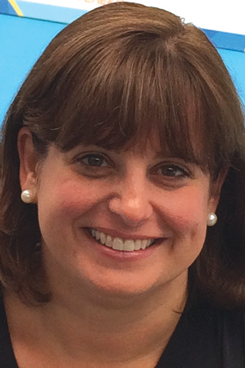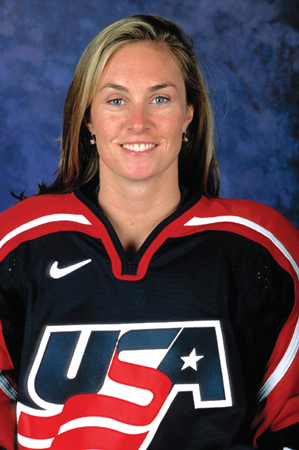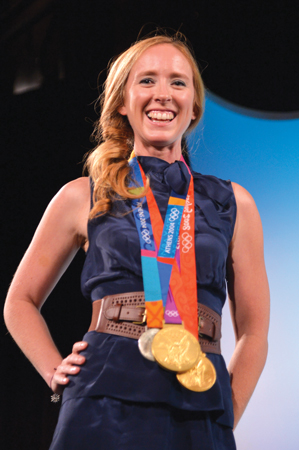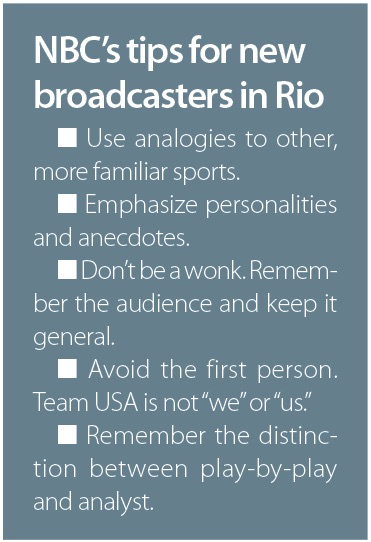There aren’t many people in the world with both network-level broadcasting chops and expertise in the Olympics’ lineup of esoteric sports. With coverage of the Games expanding dramatically, finding and training those rare talents has become a major project for NBC Sports.
The network has hired more than 170 people to call this summer’s action in Rio, a roster that’s grown 43 percent since the 2012 London Olympics. For the first time, all 28 sports will get live linear coverage.
Some specialists, like swimming analyst Rowdy Gaines, are familiar faces in an Olympic flagship sport that regularly airs outside of the Games. Others, like three-time handball analyst Dawn Lewis or table tennis play-by-play man Sean O’Neill, fill a true niche.
 |
Chatman
|
Recruitment, contracting and development takes 18 months or more, said NBC Olympics coordinating producer Rebecca Chatman, a veteran of 10 Olympics. Nearly a quarter of this year’s announcers are new.
To start, Chatman scours the ranks of recently retired Olympians, who make up most of the analysts, and also solicits suggestions from the sports’ national governing bodies. Sometimes it comes down to old-fashioned auditions.
“Some people are naturals, and some people, you know, it’s hard,” Chatman said. “It’s really hard, because these are sports people see every four years, and people might not know the rules to handball. They might think it’s cool, but we need somebody who’s going to explain and have it make sense to the American viewer.”
For play-by-play talent, Chatman also will reach out to regional sport networks within the Comcast universe, looking for professionals who might have an interest in a new sport. Even the recurring regulars are freelancers and must be signed anew each cycle, and they can’t always get away from their day jobs, she said.
Mary Whipple, two-time Team USA gold-medalist rowing coxswain, will make her debut behind the microphone in August. Unlike most, she approached NBC to seek an audition, thinking broadcasting would be a ticket to the Games after she retired.
The reviews of her first try? Good enough to get the job, but she was too technical — “you sound great, but we don’t know what you’re talking about” was how NBC producers put it.
“It’s intimidating, because you want to do right by the sport, and you don’t want to get razzed by the people in the community,” Whipple said. “However, you need to balance that with bringing in the general audience who’s never seen rowing before.”
Once NBC’s talent team makes a hire, Chatman conducts
 |
Mary Whipple (top) and A.J. Mleczko will be calling Rio events for NBC.
Photos by: GETTY IMAGES; COURTESY OF NBC UNIVERSAL (bottom) |
a quick briefing and assigns the freelancer to a research team to start preparing. She suggests watching veterans to learn how to weave competitors’ back stories into their live coverage, a crucial tactic when most of the athletes are unknown.
Then, NBC will look for opportunities to try them out in exhibition competitions or Olympic trials. Finally, in the week before the Games, NBC will lead a four-hour seminar to cover last-minute details, including advice on how to handle hot-button subjects like the water pollution in Rio and the Zika virus.
When those subjects arise, Whipple said, she’ll emphasize how seriously the team takes health and safety as a matter of routine, even without specific threats.
Field hockey analyst A.J. Mleczko isn’t new to the broadcast booth, but she’s new to the summer sport after calling women’s ice hockey in the last three Winter Games. She welcomed the challenge to develop her skills in a less familiar sport, now that she sees herself as a broadcaster first and an athlete second.
“How I approached it was: I know this profession, and now let me prove that I know the ins and the outs of this sport, and I will put in the hard work,” said Mleczko, who will call field hockey from NBC’s studios in Stamford, Conn. NBC will stream raw footage of every moment of competition online, but the announcers are involved only in linear TV broadcasts.
About 45 percent of the broadcasters — or roughly 75 out of the 170 — will work from Stamford, Chatman said.
The right broadcasters can be a boon to the sports, said USA Table Tennis CEO Gordon Kaye. O’Neill, the table tennis play-by-play man, is the group’s own director of communications. “It’s great for us because he’s an expert, and he also gets to tell a little bit of our message,” Kaye said.
In the best-case scenario, some of the first-timers thrive and take on additional roles in the NBC world. Chatman helped pair figure skaters Johnny Weir and Tara Lipinski for the first time in Sochi, and now they’ve become bona fide NBC personalities.
The learning curve is steep, though. “These Olympians get so frustrated,” Chatman said. “They’re gold medalists. They’ve been the best in their sports for so long, and I tell them, you’re not going to walk on and be a gold medalist in broadcasting right away.”







